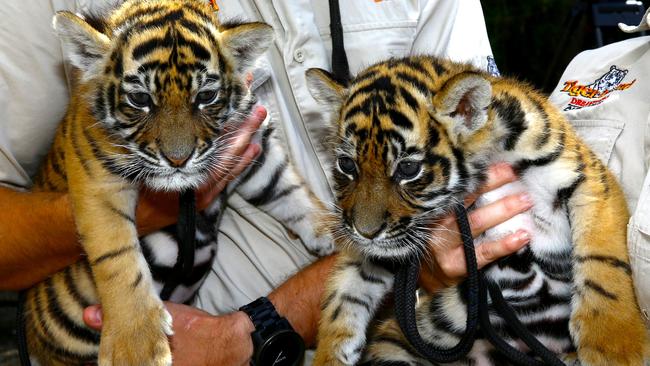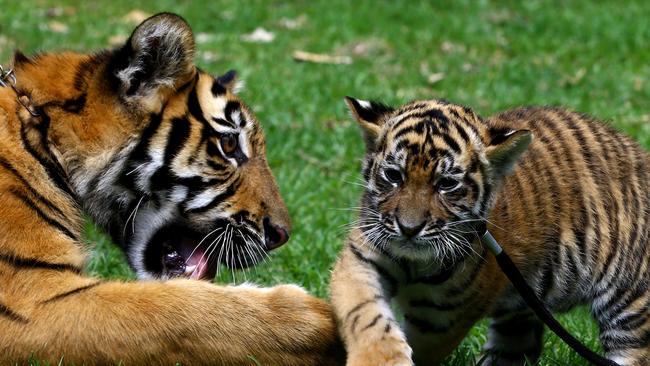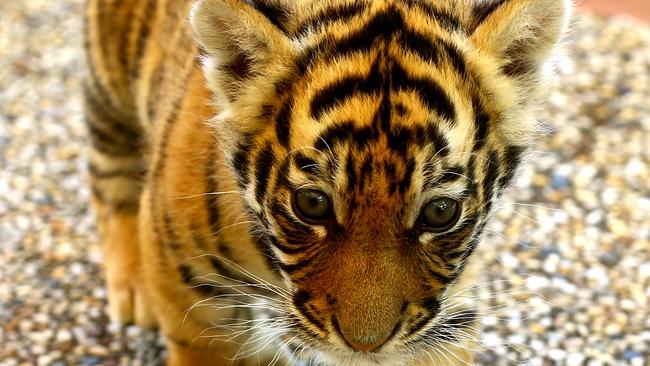The adorable new additions to Tiger Island were named today
WARNING: CUTENESS OVERLOAD. The two newest additions to Dreamworld’s Tiger Island were given their names this week.

News
Don't miss out on the headlines from News. Followed categories will be added to My News.
WHAT they lack in size they make up for in heartmelting cuteness.
Dreamworld’s newest residents Akasha and Adira were very busy this morning, not only were they given their names but the duo weighing 5.5kg each met their energetic big brother Kai and honorary grandmother Sita.

The name Adira was chosen because it means ‘strong and noble’ and Indian name Akasha was chosen because that is where some tigers are still found in the wild, Tiger Island manager Patrick Martin-Vegue said.
The pair were up and running like most toddlers after they woke up.
GALLERY: TIGER CUBS
“They sleep and when they get up they run around like crazy,” Martin-Vegue said.
Handlers said the pair are expected to put on up to 1kg a week over the next few months.
Little Adira was the loudest out of the pair letting out baby roars and running off on her own adventures with handler Ben Kearton in tow.
“Before today we called her ‘little girl’ she is very much the adventurer,” Kearton said.

He said the Siberian-Sumatran tigers are fed 500ml of formula and are slowly being introduced to meat.
“Although Adira might be the loudest, Akasha definitely is the biggest eater out of the pair, she really attacks her food,” Kearton said.
In their travels the pair met with a lucky group Gold Coast primary school kids.
“They’re really noisy and kind of feel like a dog,” said 6-year-old Mackenzie Humphries after petting the baby carnivores.
“I would like to take them home,” she said.
While they don’t know it Akasha and Adira will also be helping their wild counterparts when they meet with theme park visitors daily.
Because they are part of the park’s VIP Tiger Cub Experience they will help raise money to protect critically endangered tigers in the wild.
“There are less than 3000 tigers in the wild due to habitat destruction and poaching,” Martin-Vegue said.


